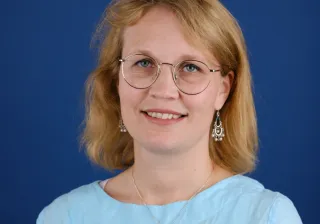It's worth thinking big and believing that a good team can make the impossible possible, says Akseli Reho. He – if anyone – should know.
Akseli Reho is the man who grew Clothing+, a kidswear company that began as a spinoff of Reima, into a global market leader, before selling it for a fortune to the major US listed company, Jabil, in 2015.
Reho, who started out as a smart clothes project manager at Reima in 1998, became an entrepreneur by purchasing a controlling share in Reima with seven colleagues in 2004. The new owners soon realised that the best ideas in wearable technology were related to work and sportswear rather than kidswear. They began developing the idea of a spinoff that would sell smart textile technology to other clothing companies.
Boldly international from the beginning
When Reima's kidswear operation was sold to a foreign buyer in 2008, Reho became the CEO and co-owner of the smart clothing spinoff from Reima, Clothing+.
– We boldly set our sights on international markets from the beginning. Our turnover began to grow and we gained big international customers such as Adidas, Salomon and Victoria's Secret. We had a factory in Deqing, China. However, as demand grew, our customers began to demand the establishment of another factory. The new solvency criteria had become terrifying by 2014. To move the business onto a broader pair of shoulders, we eventually sold Clothing+ to Jabil, the world's third-largest electronics contract manufacturer. Jabil has 80 factories around the world and a billion-digit turnover, explains Reho.
Pushing the energy sector towards reform
Following the acquisition, the 39-year-old Master of Engineering decided not to live out his days as a millionaire playboy, but threw himself into new challenges after a year-long break. In the autumn of 2017, Reho began an 18-month appointment as the new business development director and management sparring partner at an energy company Vatajankosken Sähkö in Kankaanpää, Finland.
– I've always been interested in the energy business. The new CEO of Vatajankoski Sähkö believes that someone from outside the industry can provide new ideas and help the company to restructure the energy sector, says Reho.
Reho thinks that big commitments are needed so that change starts to happen.
– We want to be the smartest energy company in Finland. When we say this out loud, it inspires our staff to new insights. The energy sector is highly conservative and we want to sow disruption.
What is a smart energy company?
– Firstly, an energy company can become smart by dismantling hierarchies and doing things together. The organisation's own wisdom should be harnessed – a big part of my job description involves listening to the good ideas of employees.
A smart energy company respects the limits of the world's resources and engages in circular economy thinking. Reho feels that an energy company should act as a bond and bearer of responsibility between local actors, while seeking sources of waste for energy production. He could imagine his employer company playing a bigger role in local waste management. Vatajankoski Sähkö could participate in the management of local material and energy flows.
– You also need to be curious about finding new earnings models, technologies and marketing practices. There is no need to reinvent the wheel, you can apply established ways of pricing and packaging services. You can also learn from the inspirational success stories of others.
According to Reho, an energy-sector version of Uber could be formed based on cooperatives and co-production, for example. Housing companies could take control and participate in energy storage, with their apartment building becoming their own energy cell.
Recipe for success in a growth company
– The key issue is to assemble a good team, with people of varied expertise and different ways of seeing the world. A team that values diversity and teamwork is a huge resource, Reho stresses.
Achieving things must be based on respect and appreciation of others. When no one needs to fear being laughed at, people will dare to be themselves. They will then dare to present and develop crazy ideas.
– It is worth having the courage to think big and believe that we can change things together. An open-minded and optimistic attitude is the key issue. Within an organisation, people should tackle problems cheerfully in the belief that anything can be solved.
Reho believes in innovation-based business
– A Finnish business cannot be market-driven, due to the scarcity of capital. The most natural thing for us is to come up with an invention or solution to a problem. A business has the prospect of being successful as long as its business idea is based on a new insight, he says.
Internationalisation – so yesterday's news
When Reho is asked for tips on internationalisation, he says that the idea is somewhat oldfashioned.
– Whatever its new business idea, a company should think about where, in the world, its best customers are and just go there and do business. When you go abroad you get instant references and a deep understanding of the markets.
Finnish startups have language skills nowadays – Reho states that these are no longer an obstacle to internationalisation.
– For my generation, modesty is no longer regarded as a virtue.
Learning and solving problems
Reho is inspired by learning, creating new things and the dialogue that emerges from working with small groups. For him, it is important to do meaningful things in working life.
– Solving the energy issue is the decisive problem of our age. We cannot afford to screw this up.
– It is characteristic of my generation that we want to bear responsibility and be genuinely involved in solving the big problems.
Reho is involved in many activities of this kind. In addition to his own work, he has served as a sparring partner on VTT's 'Innovative Business to Solve Exponential Problems' programme. This concerns VTT's internal financial instrument, where scientists focus on solving the major challenges facing society and making big leaps forward.
– I acted as an external mentor for three groups of researchers, each of which had its own idea for a research project. I helped them to crystallise their approaches, he says.



